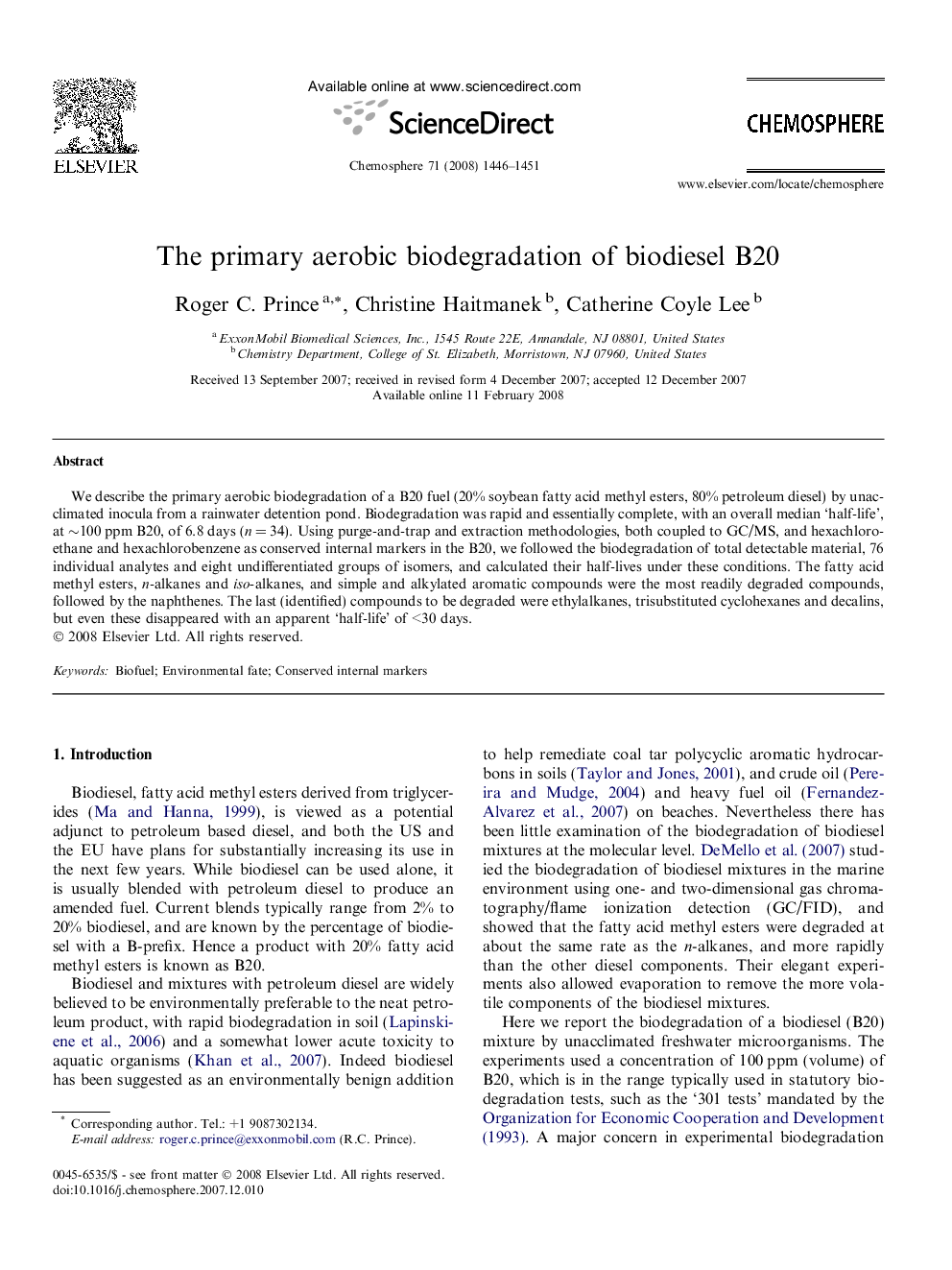| Article ID | Journal | Published Year | Pages | File Type |
|---|---|---|---|---|
| 4414493 | Chemosphere | 2008 | 6 Pages |
We describe the primary aerobic biodegradation of a B20 fuel (20% soybean fatty acid methyl esters, 80% petroleum diesel) by unacclimated inocula from a rainwater detention pond. Biodegradation was rapid and essentially complete, with an overall median ‘half-life’, at ∼100 ppm B20, of 6.8 days (n = 34). Using purge-and-trap and extraction methodologies, both coupled to GC/MS, and hexachloroethane and hexachlorobenzene as conserved internal markers in the B20, we followed the biodegradation of total detectable material, 76 individual analytes and eight undifferentiated groups of isomers, and calculated their half-lives under these conditions. The fatty acid methyl esters, n-alkanes and iso-alkanes, and simple and alkylated aromatic compounds were the most readily degraded compounds, followed by the naphthenes. The last (identified) compounds to be degraded were ethylalkanes, trisubstituted cyclohexanes and decalins, but even these disappeared with an apparent ‘half-life’ of <30 days.
